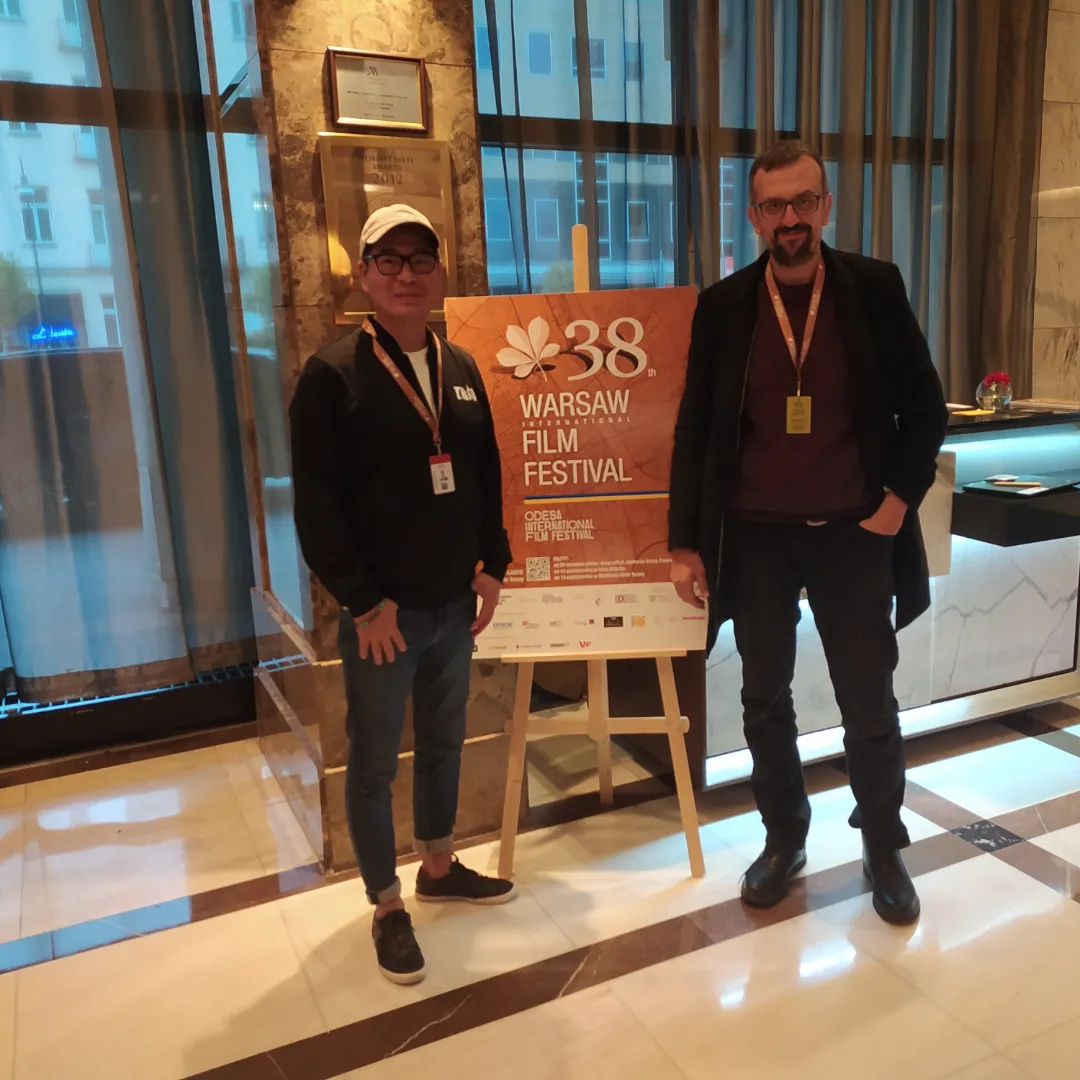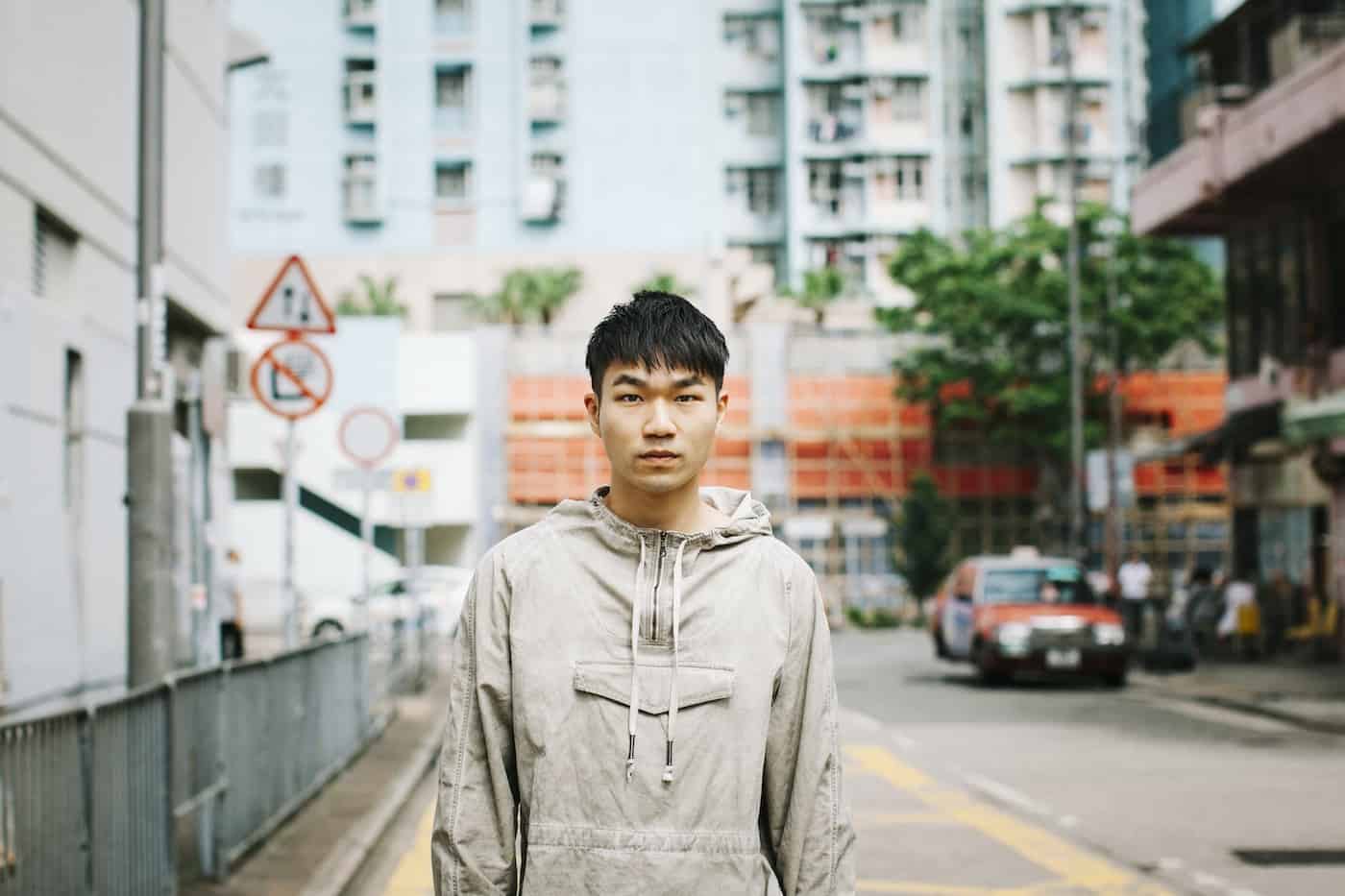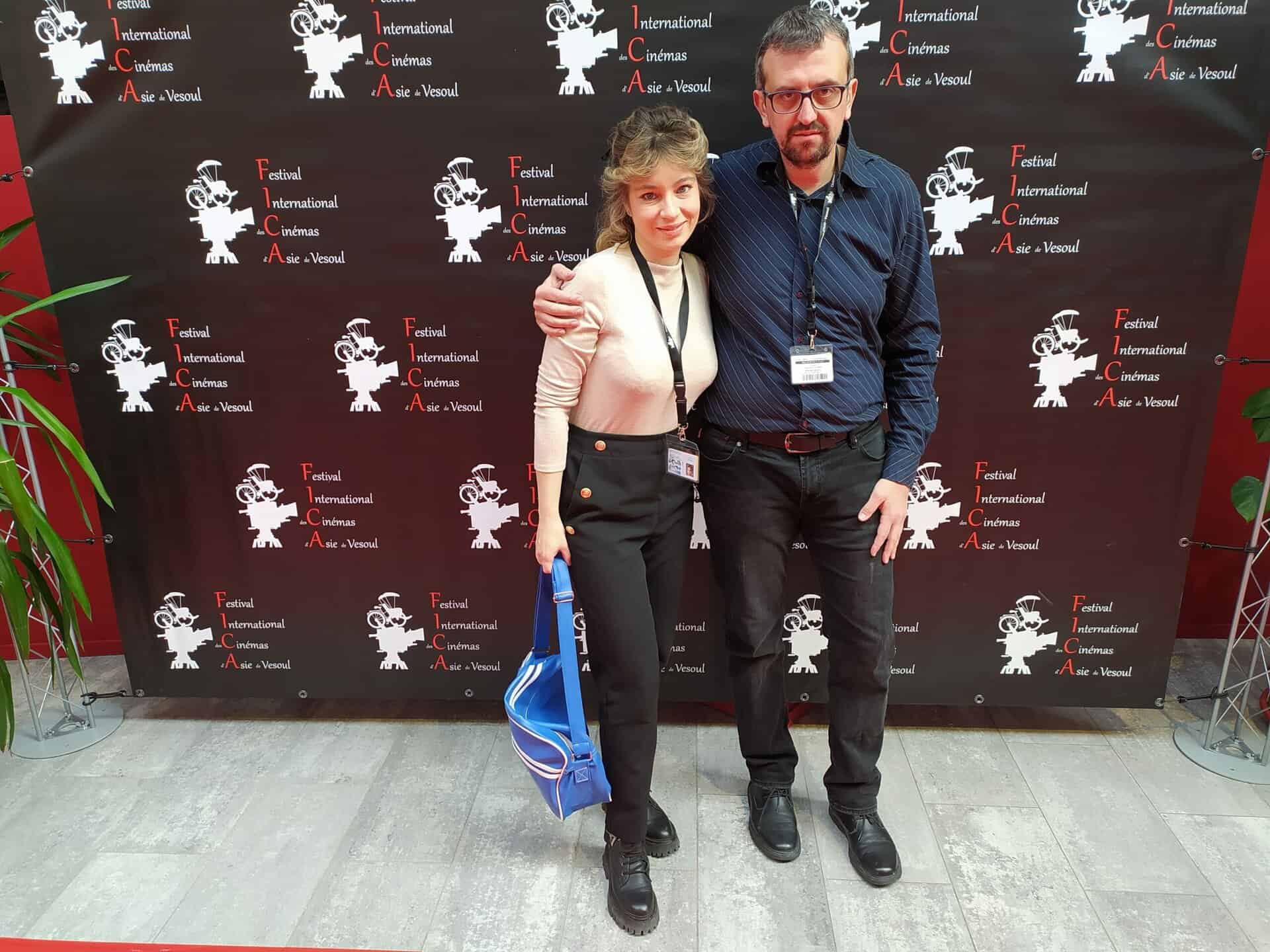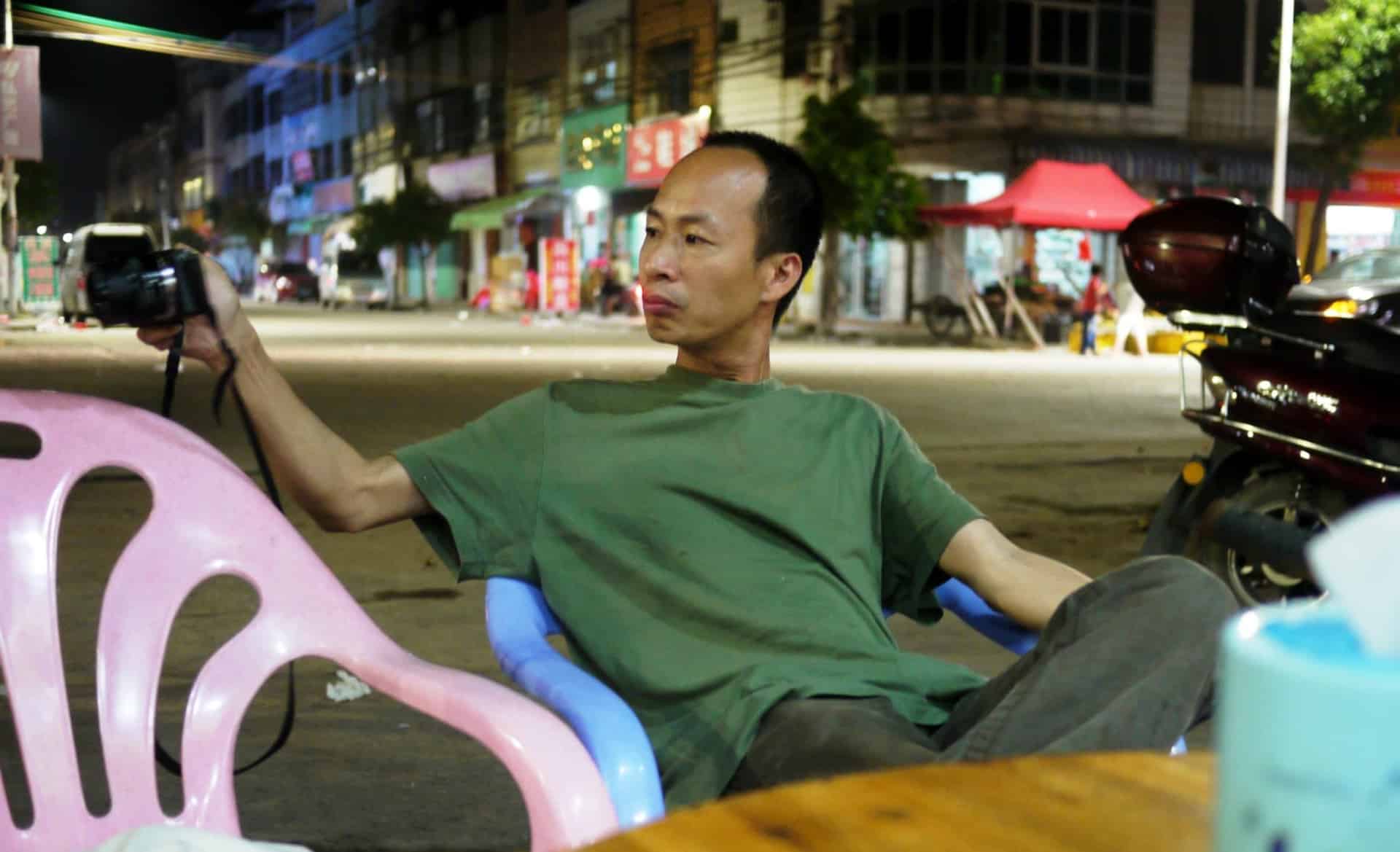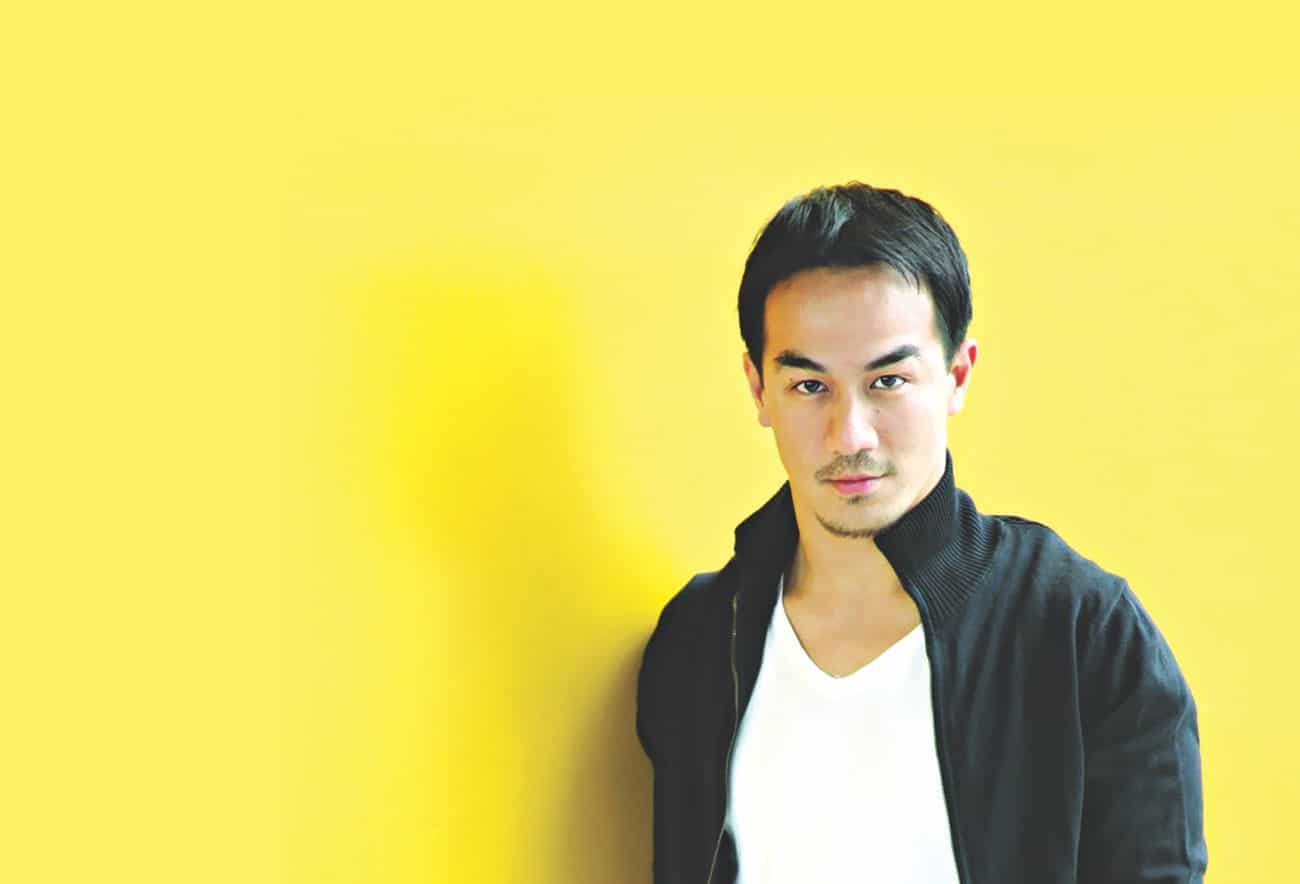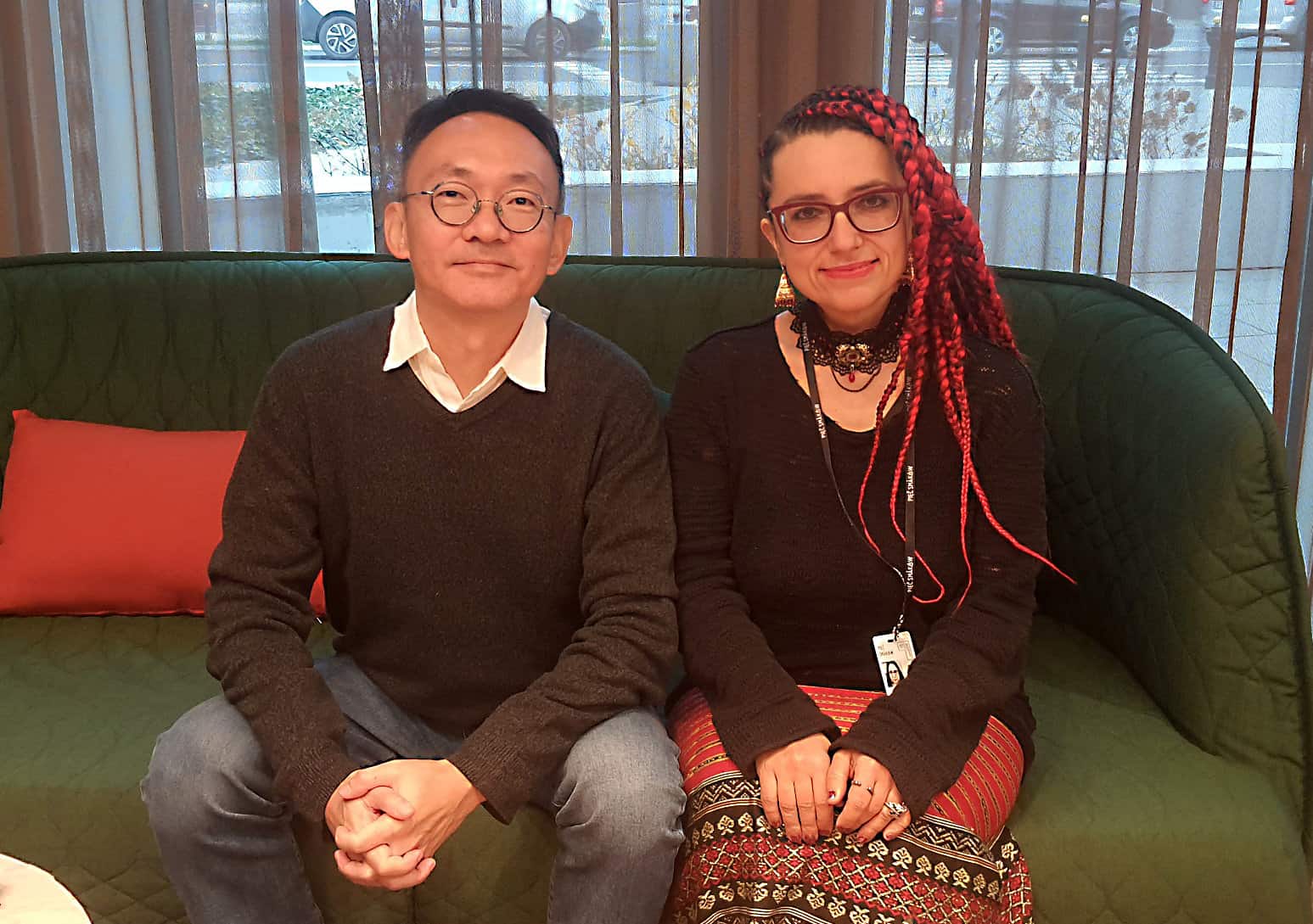It's been four months since C.B. Yi's “Moneyboys” celebrated its world premiere in the Un Certain Regard selection of Cannes Film Festival, and the time has finally come to watch it ‘at home' in Austria, at the country's biggest film event, Viennale. Vienna also happens to be the city in which the China-born director put down his roots when he was a teenager, and where he finished film school, studying directing under Michael Haneke. It is also the place where we happened to finally meet C.B.Yi for a one on one interview during the Viennale, and to talk about the film we have already watched and learned to love in Cannes.

“Moneyboys” brought you to Cannes, to un Certain Regard competition, and the reactions to it were very warm. Five months later, you are back home where the film premieres within Viennale film festival. What's the feeling like?
Of course I was very lucky and happy to be selected in Cannes, especially because it was the festival I wished I had the premiere with my first film at. Due to the nature of its story, I think that Cannes was the best platform to present “Moneyboys”, its plotline, the hidden heroes, and to show that we care about them and sympathise with them. And of course, films are well presented in Cannes.
The critics loved the film.
Most of the reactions were pretty good. I was both happy and nervous before the reviews came up. I was super excited to read some very good ones, because I felt that the critics understood what we did and why we spent so many years to make this film happen.
This is actually the first installment of a trilogy, with the plots of two other parts being set up in Europe.
It will not be the same plot, nor the same characters, but the next film starts as a coming-of-age story which involves a father and a son. It's about a younǵ student living in a city, and who is followed everywhere by his alcoholic, homeless father. The young man is ashamed of him, but he can not shake him off. But the real core of the story is actually about being home-sick and rootlessness, which after “Moneyboys” in which I tried to appeal to hidden heroes like Fe who sacrifice themelves for their families, seems like a natural continuation. Young men from the country start to be aware that they have to have a much healthier environment, better physical and mental conditions to be who they are and help their families. That would be the first part of the trilogy, which is “Moneyboys”.
Once you realize that you need that kind of life improvement, you are looking for the like-minded people you share the same experiences with. They won't necessarily replace your family, but in certain situations, they will protect and support each other. Which brings us from “Moneyboys” to the next film – “Pureland”. It is an utopian place in which different people, mostly female prostitutes live. They are exposed to all kind of abuse, mainly battery and rape, and some of them get killed. The idea for the second installment is based on true stories collected from the milieu in Paris in which north Chinese women work as prostitutes. In my film, seven women unite and create a group in order to protect themselves, but also to protect other women. “Pureland” is the name of a karaoke place in which those women gather and where their group was born. They are teaching other sex workers how to protect themselves not only from STDs, but also physically by giving them stun-guns and personal alarms that can make a lot of racket once the button is pushed. At one point, the connection between a young student and the women gets established.
When will you start shooting “Pureland”?
I have started applying for production grants and looking for the right production company. The original idea was to tell the story in Paris, but right now I think that the only acceptable solution would be to make it in Vienna. The thing is, I have just settled down and during the lockdown, I became more and more convinced that I should shoot the film here. I put my roots here, so it feels right to base the next film in Vienna, as a “home play” so to say. Also, I know everyone here so it's easier both in terms of production and execution.

You were the student of Michael Haneke. How was his reaction to “Moneyboys” in case he watched the film?
He hasn't seen it yet. I've sent him the film link before the official premiere at the Viennale, but it had English subtitles only. He asked me for the screener with German subtitles. He also wanted to come to the premiere, and although he was fully vaccinated against Covid-19, he wasn't feeling that confortable to be in the crowd. And also, he lives outside of Vienna.
“Moneyboys” was supposed to be shot in China but you decided against it in the end, and the film was entirely made in Taiwan. What happened?
It was natural that I wanted to shoot in China because I was already two years into the casting during which I found a lot of good actors who wanted to participate in this project. But from one day to the other, financial issues occured, and also many actors were advised by their agents against playing in “Moneyboys” .
You lead is played by Kai Ko, one of the greatest young actors (and popular singer) whose career was on hold due to the drug scandal in 2015. How did it come to your collaboration?
He was on my mind almost right from the beginning, also while we were casting in China, but he was far away. Once we decided we were moving the production to Taipei, he was our first choice. At the beginning, the producers were very much against this idea because of his reputation, but also because they were scared he would cost a lot of money. He is still a super star in Taiwan.
Three months before the shooting, we still didn't have the right cast for the role of Fei, and I said: “Please let me meet him. Maybe I will be able to convince him.” We met, he read the script and said yes to the role. He is simply amazing. That was the only right choice. I hope that he will finally get a reward for his role in the film. It's a pitty he didn't win anything so far. I know how meticulous he was in prepairing for his performance.

It must have taken a lot of time to research the topic of male prostitution in China.
Yes. I started in 2010. I met some male sex workers, which is not as easy as you would think. In China, female prostitution is very visible, and also very present. What shocked me was the realization that the big majority of male prostitutes were heterosexual. This lead me to wonder why they did it, and what happened when their families found out what they were doing. I was slowly getting acquainted with the milieu through my schoolmate who knew many of them. At that time I still wanted to shoot the film as a documentary or as direct cinema, but at the end I decided for fiction because it gave me more freedom to put the essential in focus.
It is interesting how you place the story in a social context. Fei's family doesn't say no to the money coming from him, but they can't stomache his way of life. Were those emotionally charged family scenes also based on conrete stories you've heard in the prostitute milieu?
Yes, but I chose one concrete story. His social environment was against him. In the film you can see the father who's sitting at the dinner table, unable to say a word. Maybe he feels sympathy for his son innerly, but in front of all the others from the village that he needs to face daily, his emotions are put on ice. This is also a problem. In China, the family is not just parents and siblings, but all the other, numerous relatives. That is why I wanted to make a feature film, to make the audience feel the emotional variations. I have lots of things going on in the story, but I always stop short before more melodramatic depiction of the situation in order to motivate the audience to think about what and why is happening. What is going on with those young men? Why are they crying, why do they make compromises? There is always a story behind every single decision, and behind every hurt.
For example, after Cannes, some reviews coming from China were reflecting the societal attitude. Somebody wrote that the film had no story. When I saw something like that, I just ignored it. Those people are simply not empathetic. Anyway, there are so many different people in the world, and it is not my duty to please them all.
When you moved the movie to Taipei, you had an almost completely new crew including the French cinematographerJean-Louis Vialard, who is actually based there and quite busy shooting Taiwanese films. Can you tell us something about your collaboration?
He came on board quite late, only a few months before we started shooting. As soon as he came to Taipei, we started looking at locations, and since everything was clearly described in my script – it made things much, much easier. Actually, I also studied camera so I am very much aware of the visuals. For instance, I wanted to have every scene shot in just one take,so Jean-Louis would go to check the possibilities to move with the camera on every location. It wasn't difficult at all to pull off what I wanted to.
How long did you shoot the film for?
In total – 35 days, mainly on locations in Taipei, but those that were supposed to be playing in rural China were shot in South Taiwan because it is super difficult to find a proper traditional, old village – desolated with few people. We finally found a pretend thing on the pond with few houses which were created for wedding photos. Something of “Minimundus”. We immediately went there with the set designer and made it into a village. All those houses were actually completely empty. Out set designer did all of it just in few days.
What does this film mean to you?
People like Fei are heroes to me. They sacrifice themselves every day for others. Fei had to grow up hiding his true identity and character by trying to please everyone in the community, in exchange for a bit of respect and love. There are many people like him in the world. I must say that I felt very sad when I learned about the destinies of some of them. That's why I wanted to show their destinies on the big screen, and to give them a platform to regain their visibility.
Do you think that “Moneyboys” has any chance of being shown in China?
I am sure that many people would love to see it, but I am not sure if this is possible. I was told by my producer Barbara Pichler that the Austrian embassy in Peking wishes to show the film to a certain audience. I also had many inqueries over Instagram from China: people wanted to know where they can see the film. I am sure that many of them will find the possibility to watch it somewhere online.




